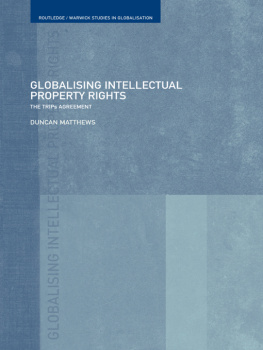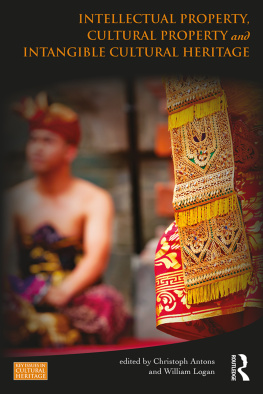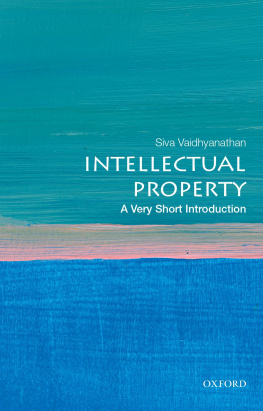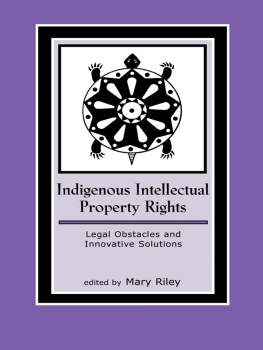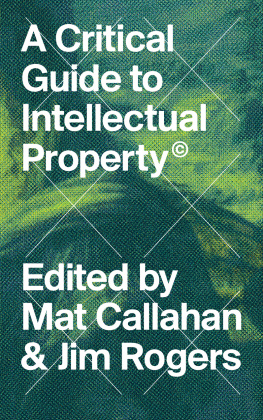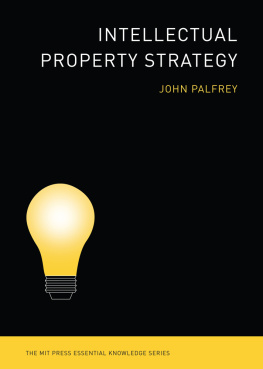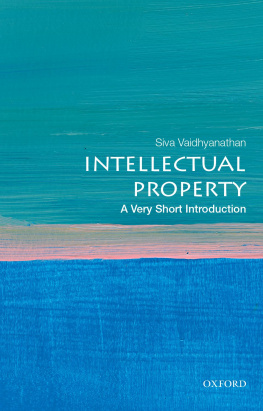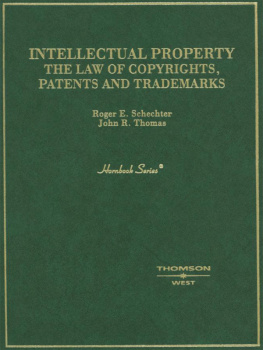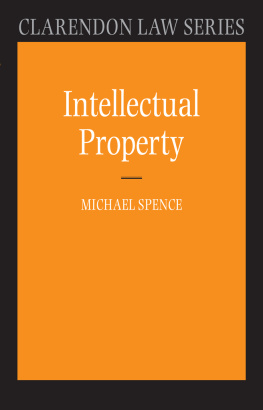Contents
v
Conclusions
We started this study arguing that the institution of intellectual property is complex and highly political. Intellectual property protection is essentially about wealth, and its form and substance have been contested since its very beginning. This study has focused on developments that have unfolded within the trade and IP regimes from the 1980s onwards, particularly on the contests over the interplay between intellectual property, global trade rules and public health that emerged in the late 1990s. The aim was that of understanding and explaining what conflicts lay at the source of contests over IPRs and access to medicines, whose interests are served by the arrangement that is being contested, and how the latter unfold and get resolved, or not. In order to make sense of these developments, I put forward a conceptualisation of regimes which understands them as the loci of greater or lesser but inevitable tension between state and non-state actors, that is, as dynamic and contested processes. This concept places the focus primarily inside the regime in an effort to better understand what goes on inside it, what shapes the behaviour and interest of regime actors, what the contests are about, how these unfold and get resolved and how they interplay with developments in other regimes and beyond. State and non-state actors involved in regime contests have different material interests and normative understandings as to how a particular issue should be resolved, with each actor, or coalition thereof, attempting to convince others of the legitimacy of their preferred view. In seeking to shape regime contests, the actors engaged in them are motivated, act and coordinate efforts in the material and discursive realms simultaneously, but they do not have equal chances of success. Some actors are better positioned and have better resources at their disposal that give them more leverage over regime contests. But the mere existence
of such power does not necessarily guarantee success. Weaker actors can also score victories, especially if they are able to frame issues in ways that resonate with broader ideological changes, enrol the support of other actors by building alliances and networks, exploit opportunities opened up by conflicting interests and lack of unity between other actors, capitalise on institutional advantages present in other fora and make strategic use of political crises as and when they occur. As we saw, this is how the coalition of developing countries and Campaign NGOs managed to secure the Doha Declaration in 2001, although since then their success record has not been as impressive. What follows revisits some of the reasons for such outcomes.
As was argued at the start of this study, the WTO TRIPs agreement is without doubt the most significant development in the politics of international intellectual property of the twentieth century, at least insofar as it set in motion the global harmonisation and enforcement of private intellectual property rights. However, TRIPs has not only failed to settle many of the long-standing unresolved tensions and controversial aspects of intellectual property rights, but by decontextualising and launching them onto a global level, it has helped reveal and magnify them even further. Thus, it is not surprising that recently the tensions and contradictions associated with IPRs have become more acute and the politics of intellectual property has become more intense. Indeed, as we have seen, since it came into force in 1995 TRIPs has increasingly been contested between different actors in several fora and regimes, including those dealing with food security, genetic resources, public health and human rights, and continues to be contested today.
Perhaps the most controversial and politically charged of such contests to date have been those over the interplay between intellectual property, international trade rules and public health. For the purpose of this study, we focused on key junctures, such as the 2001 Declaration, the 2003 Decision and the 2005 TRIPs amendment, understanding that the latter did not signal the end of contests over IPRs and public health, either within the trade regime or elsewhere. This is consistent with our broader conceptualisation of regimes as more or less dynamic and evolving processes, representing the outcomes of a series of contests over diverse issues and many actors over time. In addition, each of these outcomes eventually becomes one of the constituent layers of the regime structure, in turn fuelling, informing and shaping new contests between new and old actors over related issues as and when they arise. We saw how the TRIPs agreement itself was the outcome of the active agency of certain state and non-state actors. Once it came into force, it became part of the structure itself and in turn informed contests over several issues, including those over access to medicines. That set of contests culminated in the WTO Doha Declaration on the TRIPs Agreement and Public Health in 2001 which, for its part, also fuelled and shaped developments that unfolded within the WTO with regard to the single issue of compulsory licensing for pharmaceuticals and beyond.
One key observation that emerges from the analysis of these developments over time is that negotiations over a given issue are continuing: issues are framed, defined, challenged and redefined by various actors over and again. As was noted in Chapter 3, a handful of IP-reliant business actors were extremely successful in framing the need for the global protection of their intellectual property in a manner which resonated well with broader material and ideological changes occurring during the early 1980s. Their formulation was politically appealing to certain key developed countries' governments preoccupied with their present and future economic performance and competitive positioning in the global economy. It was these business actors that framed IP protection as an international trade issue and were subsequently successful in persuading the governments of certain key states within the trade regime that it was in the overall interest to negotiate global IP protection as a trade issue. The ensuing WTO TRIPs agreement testifies to the victory of these actors, in that it transformed the IP-trade link - by no means the only or the most desirable link - into 'hard' law observable in the majority of countries and enforceable at the global level.
Other state and non-state actors have since then attempted to reframe intellectual property as an issue closely related to human and economic development. The WIPO Development Agenda initiated by a group of developing countries and widely supported by civil society actors exemplifies such attempts, as do proposals for an 'Access to Knowledge' treaty that would link IP to the promotion of certain basic rights such as food, health and education. Of these and other potential links, that made between IP protection and access to medicines has been the most politicised and perhaps the most successful so far, at least insofar as it achieved concrete results with the Doha Declaration and the TRIPs amendment. As had been the case with the origins of TRIPs, the link between IP and access to medicines was not framed and defined by state actors, but by a group of international health and non-health NGOs when the HIV/AIDS crisis reached astonishing heights during the late 1990s. As business actors had done before them, these non-state actors were successful in framing their concerns into a succinct formula which linked IP protection to the high prices of patented medicines and the consequent loss of human health and, indeed, life. This link was appealing to most developing countries, which, already struggling to deal satisfactorily with public health responsibilities and challenges, were finding their policy space increasingly constrained by their commitment to introduce IP protection for medicines and other related IP protection rules as mandated by TRIPs. The ensuing Doha Declaration testifies to the victory of the network between these non-state actors and developing countries, at least insofar as it unambiguously clarified certain TRIPs flexibilities and claimed back some policy space for public health purposes.
Next page

